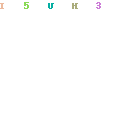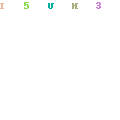While Bengal had 19,117 new cases and recorded 147 deaths on May 16 — the first day of restrictions — number of new cases has slid to 4,286 and deaths to 81 on June 12.
The decline has been just as sharp in Kolkata during the period. While the city recorded 3,451 new cases and 33 deaths on May 16, the figures dropped to 401 and 14, respectively on June 12.
The decline in positivity rate in Bengal has been even more dramatic. It has dropped from 29.7% on May 16 to 6.8% on June 12. Number of tests, however, has remained steady at over 60,000 a day.
While doctors and experts have heaved a sigh of relief at the wane of Covid over the last one month, they warn that the lifting of restrictions has to be gradual, guarded and strictly according to rules being followed worldwide.
“It’s still too early to lift all the bars and they should, in fact, remain in place till at least October. The restrictions have been successful, though it was imposed late. Now that we have the situation under control, we shouldn’t let it go,” said Institute of Post-Graduate Medical Education and Research (IPGMER) professor Diptendra Sarkar.
He added that the withdrawal of public transport in Kolkata along with intra-state and inter-state travel has curbed transmission effectively. “This is the only way and we had done it last year as well which helped us keep the number of casualties low. If we can stick to some restrictions till October, we would be in a better position even if the third wave strikes in November,” added Sarkar.
RN Tagore International Institute of Cardiac Sciences (RTIICS) consultant Arindam Biswas agreed. He added that gatherings should not be allowed for the next few months and tests should go on. “Once congregations are allowed, transmission will return and there could be a revival of the second wave. More importantly, the number of tests should remain the same since this will help to detect if the virus is mutating. We need to guard against it,” said Biswas.
He added that gatherings, too, could help the virus to mutate. “The more transmission happens, the higher are the chances of the virus mutating and affecting even those who are vaccinated,” said Biswas.
But unlocking can’t be prevented over the next few weeks, felt a public health expert. “It will happen and the challenge for the authorities and the people is to take a lesson from the previous two waves and make sure that we don’t repeat the mistakes. Social distancing and masks were almost discarded during the latter half of the first half,” he said. Sarkar felt that the speed and extent of lifting restrictions should depend on the rate of vaccination. “If we can vaccinate more consistently and faster, only then can we afford to lift restrictions,” he said.
Source: https://timesofindia.indiatimes.com/city/kolkata/covid-restrictions-lead-to-case-drop/articleshow/83492445.cms



